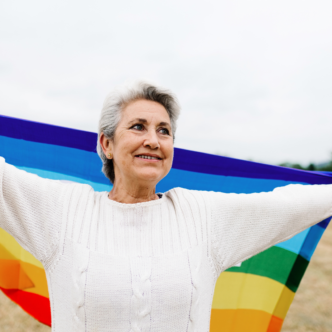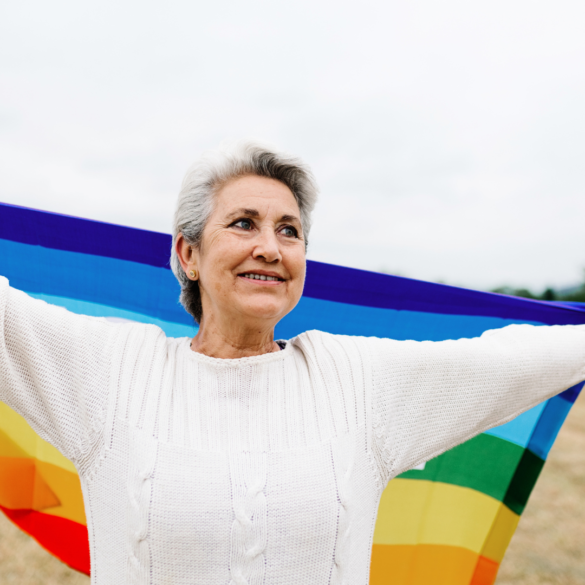LGBT+ allies and how you can be one
In this post, we cover the topic of LGBT+ allies and how you can be one.
Being an ally to the LGBT+ community is simple. If you agree in equality and fair treatment of people in society who identify as LGBT+, then you already support allyship!
An LGBT+ ally is a heterosexual and/or cisgender (someone whose gender identity corresponds with their birth sex) person who supports and accepts civil rights, gender equality and LGBT+ social movements.
They also actively challenge acts which they perceive as being non-inclusive, such as homophobic, biphobic, and transphobic abuse.
Why is being an ally important?
Promoting and encouraging allyship of the LGBT+ community is important for everyone, as it works to make society more inclusive, open, tolerant and loving to all. And who wouldn’t want that?
Supporting those around us is key to maintaining our mental health, and that of the people we care about.
In being there for others and showing that we support them, we help meet Emotional Needs for Security, Status, Community and Emotional Connection.
(Find out more about Emotional Needs here.)
If you would like to be an active and effective ally, here are a few ways to get started.
Support your LGBT+ friends, family and colleagues
Be there for your friends who identify as LGBT+, supporting them when they need you, actively engaging in and supporting their life. Stand with and show your support for the people you work alongside, whether it’s helping with an LGBT+ work event or wearing the rainbow badge showing that you are an ally to the LGBT+ community and are happy to chat.
Be conscious of your language
The language used to describe LGBT+ identities and issues can be complex and evolutionary, so keeping up to date with LBGT+ news is important. You might have training courses or events through work or your social life that you can attend which will help keep you up to date with changes in the language used by
LGBT+ people to identify themselves and others. Allyship is not about knowing it all and never making mistakes – it’s about our intentions and reactions.
Challenge non inclusivity
Whether its an outdated online form, a piece of workplace training which hasn’t been updated to be inclusive, or a conversation with your family in which terms are used that you know to be discriminatory – challenge it. It might be that people are not aware that they have made a mistake, and this could be a great opportunity for them to have a second go at getting things right. Being an active ally helps others to better understand LGBT+ people – but please only challenge when and where you feel safe to do so.
Learn more about Pride and Allyship
There’s lots to learn online about the origins of the Pride Movement, which will help you to understand the legacy of protest and the political struggle to get us where we are today with LGBT+ rights. Once you’ve learned about events such as the 1969 Stonewall uprising, keep your mind open to learning more – as we still have some way to go to reach total equality.
Accept that you might make mistakes
Allyship still rests on the principle that your experience and understanding is different to the LGBT+ people you support. If you make a mistake, someone might take you to one side to explain what you didn’t get right this time, and how you can get it right next time. Be open to feedback – it’ll help others know that they can be themselves around you and that you’re on their side.
In conclusion
Choosing to be an ally is a continual, intentional commitment to support all of those facing discrimination or disadvantage regardless of identity. These issues won’t disappear if all non-LGBT+ people back down or remain silent. Society will only change when people stand up for what they believe is fair and equitable.
By being an ally to LGBT+ people, you can be a little part of the positive movement in society both today and in the future.
To find out more about how Suffolk Mind can help you and those around you, take a look at our LGBT+ Mental Health page.















